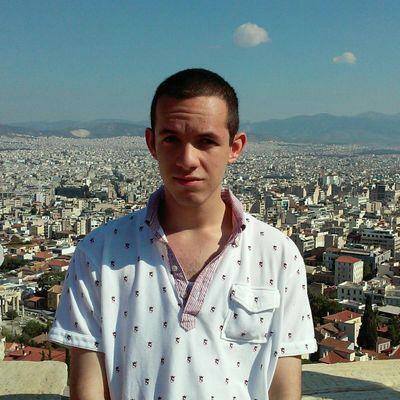 Channeling Admiral Stockdale, I’d finally like to introduce myself to everyone; preferably, a bit more successfully than he did. My name is Jose Fernandez, and I’m from Long Island, New York. I graduated from Brentwood High School, whose 2015 graduating class had roughly 1,000 students, and I’m currently a freshman in the College of Arts, Sciences, and Engineering here at the University of Rochester.
Channeling Admiral Stockdale, I’d finally like to introduce myself to everyone; preferably, a bit more successfully than he did. My name is Jose Fernandez, and I’m from Long Island, New York. I graduated from Brentwood High School, whose 2015 graduating class had roughly 1,000 students, and I’m currently a freshman in the College of Arts, Sciences, and Engineering here at the University of Rochester.
One of the main reasons I chose to come here was its unique curriculum. The Rochester Curriculum has only one required course: a writing class, and there are hundreds of concentrations to choose from; I happen to love mine on the “Ethics of Economics” right now. Alongside one WRT 105 course, each student must complete a cluster—a set of three courses—in the two areas that are outside one’s major (accredited engineering majors need only one cluster). Thus, a political science major (part of the social sciences) like myself would have to complete a cluster in the humanities and natural sciences.
But then, I should also add that I don’t want to just major in political science. I absolutely love to talk about politics and public policy, but that entails an interest in so many other academic concentrations. Tentatively, I hope to double major in political science and philosophy, with a double minor in economics and history. That may sound like a lot, but after devising my tentative four-year schedule, it is absolutely doable. Thanks to the absence of many requirements, I am free to study what I love ad infinitum. And thanks to our Take Five Program, students can apply to stay a fifth year, tuition-free, to study something unrelated to their major(s) or minor(s). All of this makes for a stimulating intellectual environment, as the University of Rochester enables its students to partake in a nearly unfettered academic path.
The University of Rochester’s academic rigor was, combined with many other things, another reason I chose to come here. The University of Rochester has estimable Departments of Political Science and Economics; the pair greatly influenced their respective fields after the 1960s. One of the greatest things that I have discovered about this school is the accessibility of the professors. Class sizes in my preferred fields of study are very small (especially once one progresses to upper-level classes), thus it is extremely easy to get to know your professors. I have gone to my professors’ office hours several times—even for a professor whose class I am just auditing—and it is incredible being able to talk to people who have testified in front of Congress and been cited by the Supreme Court of the United States. I’ve found that this makes for an extremely tight-knit environment. At a school the size of the University of Rochester, one can undoubtedly find time to get to know his/her professors.
Since I’ve arrived, I’ve taken to participating in several extracurricular activities. I am a member of Students for Liberty, Mock Trial Organization, Model United Nations, and the Undergraduate Political Science and International Relations Council, among others. I’ve befriended amazing people who share my passions. Despite our small size relative to other top research universities, we have an endless number of extracurricular activities. Whether your niche is public speaking and debate, or poetry, there’s a club for that, and a group of people who share your passion.
I think the University of Rochester is the perfect size for a research institution. The size makes for a congenial environment that invariably allows you to get to know the brilliant minds that teach you. The student body has been my greatest treat. In the short time I’ve been here, I’ve made great friends that live in places that I’ve never been to. On paper, the University of Rochester had everything I wanted; inside and out of the classroom, I’ve realized that all of those traits I desired are even greater here than I thought.

